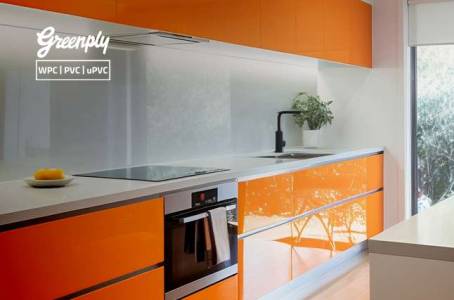Description
PVC: Versatile and Durable Polyvinyl Chloride
Polyvinyl chloride (PVC) is a widely used, versatile thermoplastic polymer. Known for its durability, strength, and affordability, PVC finds applications in a vast array of products across various industries. This description details the key properties and common uses of PVC.
Key Properties & Benefits:
- Durability & Longevity: PVC is highly resistant to weathering, chemicals, and abrasion, resulting in a long lifespan for products made from it. It can withstand exposure to sunlight, water, and many chemicals without significant degradation.
- Strength & Rigidity: PVC offers excellent tensile strength and impact resistance, making it suitable for applications requiring structural integrity. It can be rigid or flexible depending on the formulation.
- Water Resistance: Completely impermeable to water, making it ideal for plumbing, waterproofing, and outdoor applications.
- Chemical Resistance: Resistant to a wide range of chemicals, acids, and bases, enhancing its performance in industrial settings.
- Cost-Effectiveness: PVC is generally a cost-effective material compared to other plastics and metals, making it a popular choice for many applications.
- Easy to Process: PVC can be easily processed using various techniques like extrusion, injection molding, calendering, and rotational molding, allowing for diverse product designs.
- Recyclability: PVC is recyclable, although the recycling infrastructure can vary depending on location. Many manufacturers are focused on improving PVC recycling processes and promoting its circular economy.
Types of PVC:
PVC exists in two primary forms:
- Rigid PVC (uPVC): This type is characterized by its hardness and stiffness. It's commonly used in pipes, window frames, siding, and other structural applications.
- Flexible PVC: This type contains plasticizers, which make it pliable and flexible. It's used in applications like hoses, flooring, clothing, and inflatable products.
Common Applications:
The versatility of PVC makes it suitable for a vast range of applications, including:
- Construction: Pipes, window frames, siding, flooring, roofing membranes, cables, and more.
- Plumbing: Pipes, fittings, and drainage systems.
- Packaging: Bottles, films, and containers.
- Medical: Blood bags, tubing, and other medical devices.
- Automotive: Interior components, wiring, and hoses.
- Industrial: Chemical processing equipment, linings, and containers.
- Consumer Goods: Clothing, footwear, inflatable toys, and more.
Environmental Considerations:
While PVC is recyclable and offers long-term durability, reducing its environmental impact requires responsible manufacturing and end-of-life management practices. The production of PVC involves the use of chlorine, and its incineration can release harmful substances. Therefore, proper recycling and disposal methods are crucial.
Conclusion:
PVC's combination of durability, versatility, and cost-effectiveness has made it a cornerstone material in numerous industries. Its wide range of applications demonstrates its adaptability and importance in modern manufacturing. However, responsible production, recycling, and disposal practices are crucial to mitigating its environmental impact.
